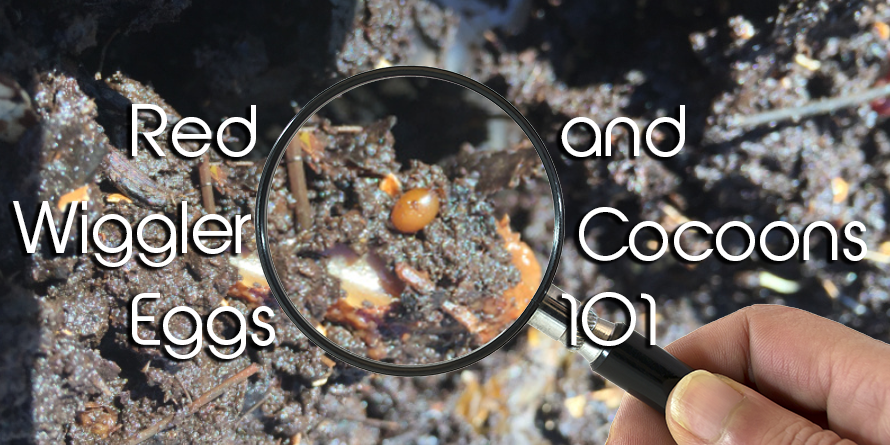Transform Your Lawn with the Expertise of Red Wiggler Express Lawn Care Experts
Red Wigglers: The Unsung Heroes of Organic Waste Recycling
Red wigglers, or Eisenia fetida, offer as critical representatives in the natural waste recycling procedure, changing thrown out materials right into useful vermicompost. As the world significantly seeks solutions to battle waste build-up and enhance agricultural productivity, recognizing the role of these worms comes to be crucial.
What Are Red Wigglers?
The remarkable strength of red wigglers, scientifically referred to as Eisenia fetida, highlights their vital role in natural waste recycling. These small, reddish-brown earthworms are typically located in decaying organic issue, such as compost stacks and manure stacks. Lake Hickory Bait. Unlike other earthworm types, red wigglers thrive in nutrient-rich atmospheres and are highly reliable at breaking down natural materials, making them necessary for vermicomposting

(Red Wiggler Express)Along with their role in waste reduction, red wigglers contribute to dirt health by improving soil structure and oygenation through their tunneling activities (Lake Hickory Bait). Their existence in composting systems not just improves disintegration rates but also promotes a sustainable method to lose administration, showing their relevance in environmental preservation initiatives
Advantages of Composting With Worms
Composting with worms, specifically red wigglers, supplies countless advantages that enhance both waste management and soil health. Initially, these worms successfully damage down natural waste, transforming it right into nutrient-rich vermicompost that enriches soil. This process accelerates decomposition, allowing for a quicker recycling of kitchen area scraps and other organic products compared to standard composting techniques.
Furthermore, the vermicompost produced by red wigglers is including advantageous microorganisms, which assist enhance soil framework, oygenation, and wetness retention. This boosts the overall health and wellness of plants, promoting energetic growth and increased returns in gardens and farming setups. In addition, using worms in composting lessens the production of greenhouse gases, such as methane, contributing to a more lasting waste administration system.

How to Start Vermicomposting
Establishing a vermicomposting system is an uncomplicated process that can produce considerable benefits Red Wiggler Express for both waste management and soil enrichment. To start, pick an ideal container, such as a plastic container or wood box, with sufficient air flow openings to make certain correct airflow. The dimensions ought to preferably be around 2 feet by 3 feet, allowing sufficient room for the worms to thrive.
Next, prepare bed linens product, which can be composed of shredded newspaper, cardboard, or coconut coir. This bed linens should be dampened to develop an ideal environment for the worms. As soon as the bed linens remains in location, introduce red wigglers (Eisenia fetida) right into the bin, usually around one pound of worms for every square foot of area.
Adhering to the positioning of worms, include natural waste, such as fruit and veggie scraps, coffee grounds, and smashed eggshells. Stay clear of including dairy products, meat, or oils, as these can create odors and bring in pests. Finally, position the container in a shaded, temperature-controlled location to maintain optimal conditions for worm task. With these steps, you will properly launch a vermicomposting system that adds to sustainable waste management and enriches your dirt.
Preserving a Healthy And Balanced Worm Bin
(Red Wiggler Express)Keeping a worm container flourishing calls for normal interest and like guarantee the wellness of the red wigglers and the effectiveness of the composting process. Proper upkeep starts with keeping an eye on the moisture levels; the container ought to be wet but not soaked. An excellent guideline is to keep a consistency similar to a wrung-out sponge.
Delicately blending the bedding and food scraps every few weeks stops compaction and makes certain that all worms have accessibility to oxygen. Additionally, it is essential to feed the worms appropriately.
If the container ends up being as well hot or cold, the worms may end up being stressed out. By vigilantly managing these factors, one can maintain a durable and productive worm container.
Influence On Sustainable Living
The successful upkeep of a worm container not only benefits the health of red wigglers yet additionally adds significantly to lasting living methods. By recycling natural waste, such as cooking area scraps and lawn debris, red wigglers help draw away considerable amounts of product from land fills. This reduction in waste not just reduces greenhouse gas emissions yet additionally minimizes the ecological concern connected with waste monitoring.
Furthermore, the castings created by red wigglers act as a nutrient-rich organic plant food, improving soil health and advertising plant growth. This all-natural alternative to chemical plant foods sustains lasting agriculture and horticulture practices, lowering reliance on artificial inputs that can hurt ecosystems. In addition, worm composting fosters recognition of waste management, urging individuals and areas to embrace even more lasting behaviors.

Verdict
In summary, red wigglers serve as important factors to organic waste recycling via their effective decay of natural products. By integrating vermicomposting into waste monitoring approaches, people and areas can dramatically lower waste while promoting environmental sustainability.